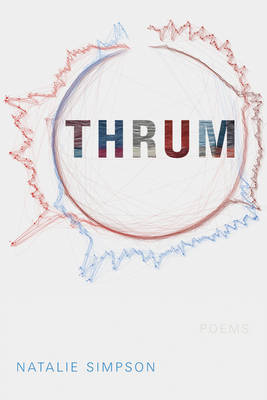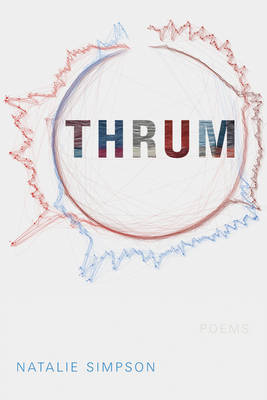
En raison d'une grêve chez bpost, votre commande pourrait être retardée. Vous avez besoin d’un livre rapidement ? Nos magasins vous accueillent à bras ouverts !
- Retrait gratuit dans votre magasin Club
- 7.000.000 titres dans notre catalogue
- Payer en toute sécurité
- Toujours un magasin près de chez vous
En raison de la grêve chez bpost, votre commande pourrait être retardée. Vous avez besoin d’un livre rapidement ? Nos magasins vous accueillent à bras ouverts !
- Retrait gratuit dans votre magasin Club
- 7.000.0000 titres dans notre catalogue
- Payer en toute sécurité
- Toujours un magasin près de chez vous
Description
"To get at turn away." In Thrum, her second collection of poetry, Natalie Simpson reveals how making sense is not always the same as making meaning. Her supple and agile poems seduce the weary reader away from representation and toward sound, texture, and absence. Here, a sentence is no longer a sentence, but "a word in pieces, plastered, faster," which "crumbles" on the page into strange and luminous syntactical patterns that create new and better pathways for meaning.
Roughly woven, rough to touch.Small words stealing fog. The rest are tongue flicks.
Home is how hard you eat your heart out. Simpson writes in a tradition that begins with Gertrude Stein and includes many contemporary Canadian and American poets, such as Lisa Robertson, Harryette Mullen, Anne Carson, Dorothy Trujillo Lusk, Dennis Lee, Nicole Brossard, and Juliana Spahr. Like the authors and the work that has influenced it, Simpson's free writing engages with language non-representationally and pays close attention to sound, rhythm, and energy within the sentence, often in dialogue with phrases from other poets. Not limited to the literary, Simpson also recontextualizes snippets of language from other discourses, such as news, advertising, and law.
Thrum records a poetics of process. Immersing herself in loosely strung lines and repeated phrases, Simpson's speaker seeks refuge in disordered language, in the alternative logic of poetic devices. For Simpson, the act of writing and unwriting is a movement toward beauty and hope, an opening. Sound and rhythm. Syntax and punctuation. Tension in the sentence. Torque. Making strange, Simpson reveals, is making sense, and placing pressure on language through poetic devices uncovers its beautiful absurdities, its languid uncertainties.
Spécifications
Parties prenantes
- Auteur(s) :
- Editeur:
Contenu
- Nombre de pages :
- 128
- Langue:
- Anglais
Caractéristiques
- EAN:
- 9780889228504
- Date de parution :
- 03-06-14
- Format:
- Livre broché
- Format numérique:
- Trade paperback (VS)
- Dimensions :
- 150 mm x 213 mm
- Poids :
- 136 g

Les avis
Nous publions uniquement les avis qui respectent les conditions requises. Consultez nos conditions pour les avis.






